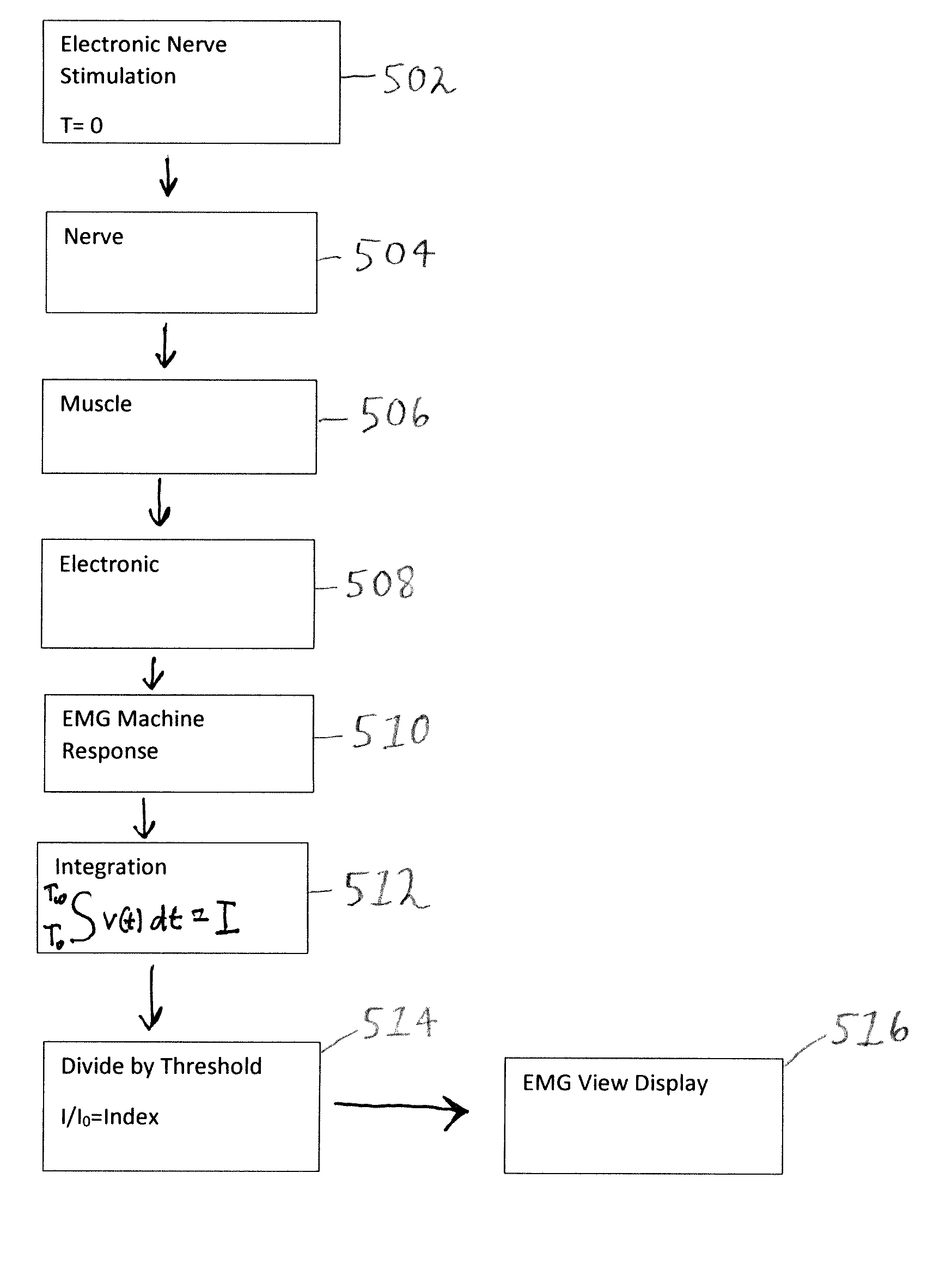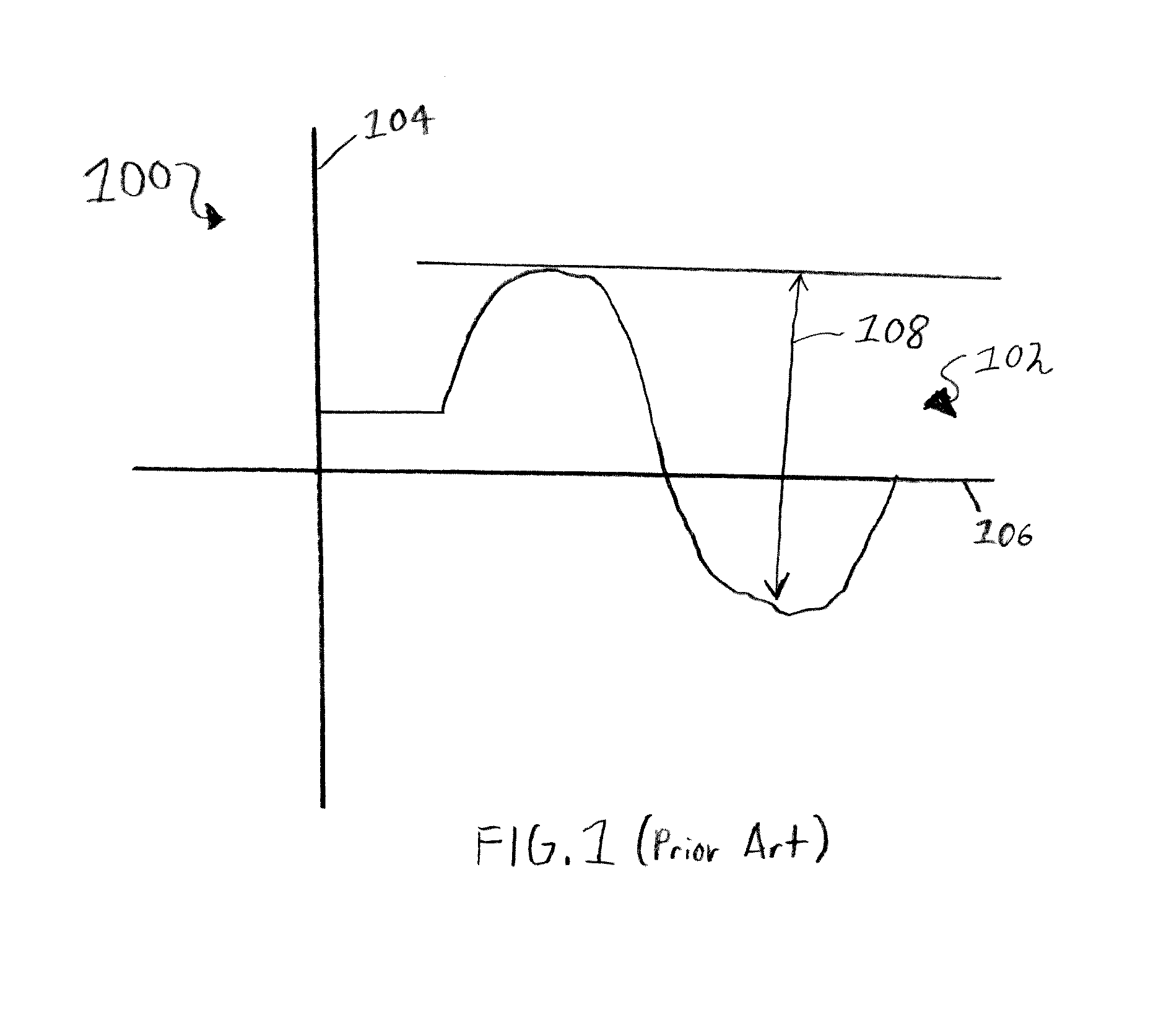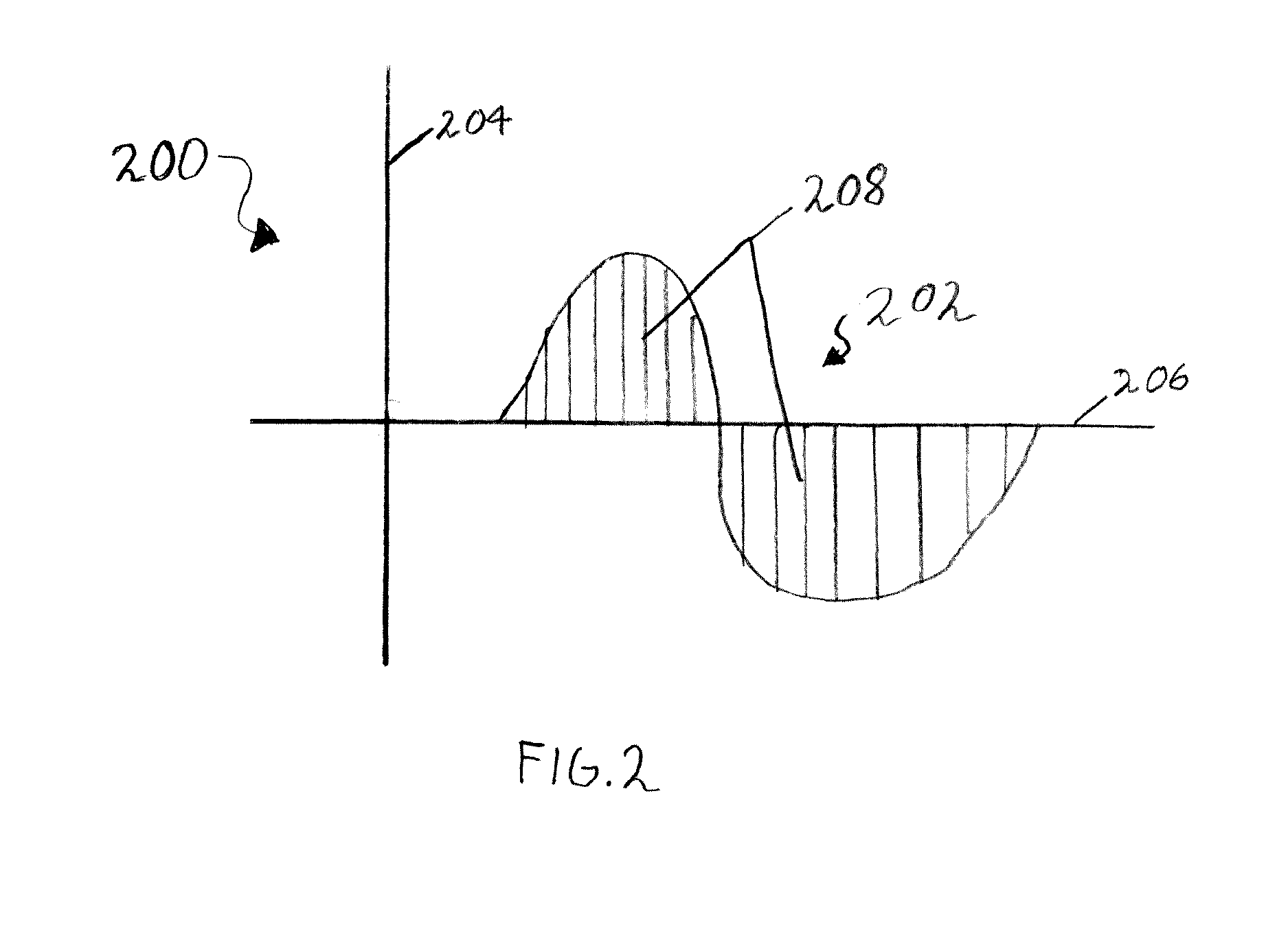Method of detecting reversible nerve injury
a nerve injury and nerve technology, applied in the field of nerve injury detection, can solve the problems of neuropraxia detection, inability to completely accurately represent the strength of a nerve response or the integrity of a monitored nerve, and the cost of voltage response algorithms, so as to achieve reliable and accurate indication.
- Summary
- Abstract
- Description
- Claims
- Application Information
AI Technical Summary
Benefits of technology
Problems solved by technology
Method used
Image
Examples
Embodiment Construction
[0020]Methods incorporating features of the present invention may involve evoked nerve stimulation and / or monitoring free-run (non-stimulated) responses. The resulting nerve responses can be monitored either at the site of the nerve directly and / or via the monitoring of an EMG response of a muscle innervated by the nerve to be monitored. Evoked stimulation methods, using manual stimulation probes and / or implanted stimulator probes, utilize an algorithm based upon mathematical integration of the resultant response waveform.
[0021]In some embodiments, such probes or electrodes can be incorporated into or utilized in conjunction with a surgical tool, for example a surgical dissector, and can indicate through change in monitored nerve response output, the proximity of the surgical instrument to the underlying nerve and the effect of the instruments or surgical procedure on nerve health. Furthermore, a nerve can be monitored so that the general health and function of the nerve provides an...
PUM
 Login to View More
Login to View More Abstract
Description
Claims
Application Information
 Login to View More
Login to View More - R&D
- Intellectual Property
- Life Sciences
- Materials
- Tech Scout
- Unparalleled Data Quality
- Higher Quality Content
- 60% Fewer Hallucinations
Browse by: Latest US Patents, China's latest patents, Technical Efficacy Thesaurus, Application Domain, Technology Topic, Popular Technical Reports.
© 2025 PatSnap. All rights reserved.Legal|Privacy policy|Modern Slavery Act Transparency Statement|Sitemap|About US| Contact US: help@patsnap.com



